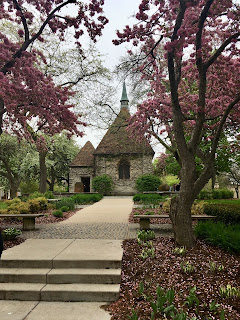| "The Kiss of Peace and Justice," Laurent de La Hyre |
Praise the Lord!
Praise, O servants of the Lord,
Praise the name of the Lord.
Blessed be the name of the Lord
From this time forth and forever.
From the rising of the sun to its setting
The name of the Lord is to be praised.
The Lord is high above all nations;
His glory is above the heavens.
Who is like the Lord our God,
Who is enthroned on high,
Who humbles Himself to behold
The things that are in heaven and in the earth?
He raises the poor from the dust
And lifts the needy from the ash heap,
To make them sit with princes,
With the princes of His people.
He makes the barren woman abide in the house
As a joyful mother of children.
Praise the Lord!
(Psalm 113)
We frequently sing this psalm in church, and - confession here - it wasn't until recently, when the tune was stuck in my head for a week, that I thought about its lyrics on any "deep" level. (Not sure if I should be proud of that sentence?) Anyways, what really stood out to me is how God's intervention in human affairs often has a topsy-turvy effect on whatever it touches. The poor sit with princes, the childless become parents, the disgraced become joyful. It is a complete disruption in the expected, conventional social order.
This phenomenon reminded me a lot of one of the major tropes you find in comedies, particularly those of the Renaissance. Upset of the existing order is present in almost any comic plot. The formula of Shakespeare's A Midsummer Night's Dream is a perfect example. It moves from order (the city of Athens, rule of law, parental/governmental/patriarchal authority, objectivity) to disorder (the forest, rule of magic, a power struggle between Titania and Oberon, and a dreamlike escape into a world that blurs the participants' grasp of reality), and then quickly restores the old order, but with modifications (restoration, harmony, marriage, benevolent interplay between the two societies). The conclusion features justice and mercy coming together in peace.
Although I used a Renaissance play to illustrate my point, ancient culture is full of the same trope. The Athenian comedies feature women unexpectedly ruling their husbands, while the Roman holiday of Saturnalia included a day in which masters served their slaves. In this light, I think it can be a helpful way to read the psalm as reminiscent of the phenomenon of deep comedy. God's work in our lives often functions as an upset in what we expect, but that is not a bad thing.
Interestingly, the psalmist reinforces this effect of God in human affairs by also meditating on its theological context first. The works of creation, providence, and salvation are all intrinsically acts of condescension on God's part. God's "glory is above the heavens" but He "humbles himself to behold the things that are in heaven and in the earth." In Christ's work of redemption, we witness Him leave the throne room of heaven to become "lower than the angels" (Hebrews 2.9) by living a difficult human life and experiencing a horrific death. But this is followed by His resurrection, ascension, and - everybody leaves this one out - session at the right hand of the Father. The order is restored, but there is now peace between God and man. Righteousness and mercy kiss (Psalm 85.10).
Ironically, in this context, the chaos becomes a comfort. It is a reminder that the children of God receive in their salvation something that fallen creatures would never deserve - twisted criminals are now heirs. It is a meditation on the merciful and humble nature of God, who was willing to exchange glory for shame. It is the reassurance that God is not absent, but rather at work - the presence of chaos (the middle portion of the cycle), necessarily implies the return of order and harmony (the restoration in the conclusion).












